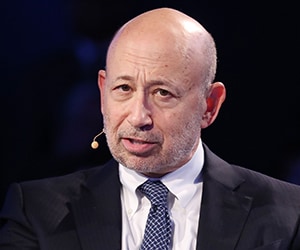Abraaj's collapse raises fresh questions about transparency and regulatory norms in the UAE and broader Middle East.

Arif Naqvi |
The dramatic downfall of the Abraaj Group, the Middle East’s largest private equity firm, threatens to deal a blow to the nascent financial services sector in the United Arab Emirates (UAE) and undermine confidence in regional capital markets. On Thursday, June 14, the firm filed for provisional liquidation to stave offpetitions presented to a Cayman Islands court by two of its creditors and pave the way for a $1 billion restructuring plan.
This precipitous turn of events raises fresh questions over the quality of regional governance and regulation, after Deloitte reportedly discovered $95 million of commingled money following an audit. While there has been no suggestion of embezzlement, Abraajcircumvented corporate governance protocolsto tap investor funds to finance a cash shortage at the firm,a decision that fueled unease among investors over lack of transparency.
Abraaj has been under siege since February, following complaints from several investors, including The Bill & Melinda Gates Foundation, over possible misuse of monies in the $1 billion Abraaj Growth Markets Health Fund. The firm—which claims more than 200 investments and $8.1 billion in capital deployed—has been caught in a downward spiral of contraction, shedding jobs and halting new investments.
Whether Abraaj, led by founder Arif Naqvi, can execute an orderly restructuring remains unclear. Now, attention is turning to the fallout from the crisis and potential reputational damage to Dubai. After emerging from the financial crisis of 2009, the UAE rebuilt its standing as the Gulf’s financial center by bolstering its regulatory regime. Analysts warn the collapse of Abraaj could reignite concerns about oversight, but that it could also reignite the zeal of regulators. “It is definitely a bit negative, but we believe regulatory operatives will be a lot more proactive and more prudent after this,” says Chiradeep Ghosh, a banking analyst at SICO Bank in Bahrain.
Dubai Financial Services Authority, which regulates firms in the Dubai International Financial Center where Abraaj Group has its offices, could not be reached for comment due to a public holiday.
The UAE, along with Qatar, was promoted to emerging-market status by index provider MSCI in 2014, attracting additional capital as funds updated portfolio weightings. A change in sentiment could make it harder for companies to raise cash. This year, the Dubai stock index slumped almost 14% in part due to an outflow of funds to neighboring Saudi Arabia, then being considered for inclusion in the MSCI Emerging Markets Index.
If the crisis at Abraaj drags on, it risks exposing the broader sector at a time regional capital markets are increasingly reliant on international investors. Despite geopolitical tensions, foreign direct investment to the UAE rose 8% last year to $10.4 billion, according to the United Nations’ World Investment Report 2018, in part due to rising cross-border M&A.



